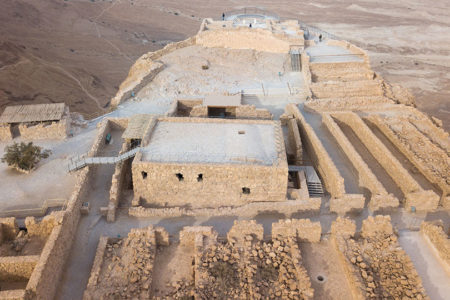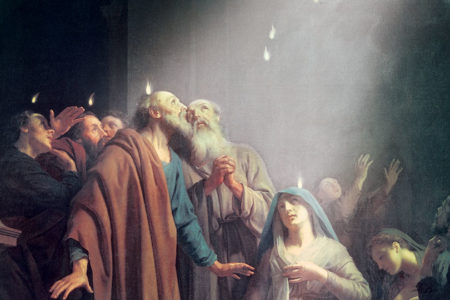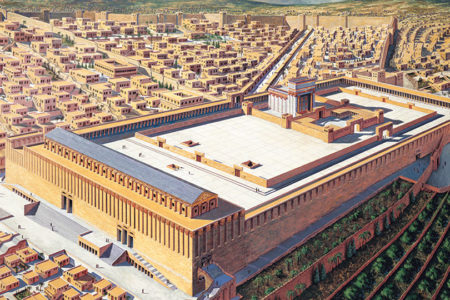Critical Issues Facing Today’s Churches Part One
As a person who loves the church and has been privileged to minister in numerous local churches for more than four decades, I have a deep concern regarding the directions that many churches are going today.
I am convinced the most critical issues confronting churches are these: What should be the source of authority for determining the nature, purpose, and function of the church? And what are the nature, purpose, and function of the church?
Source of Authority
Is the source of authority to be (1) a market-driven philosophy; (2) the opinions of the people in the pews; or (3) God, through the revelation He has given in Scripture concerning the church?
In essence, the market-driven philosophy says, “In order to reach the unsaved, we must make the church relevant to them by conforming it to their concept of relevancy.” This approach allows the unsaved—whom the Scriptures declare are the children of Satan (1 Jn. 3:10)—and the world’s wisdom, which God declares is “foolishness” and “futile” (1 Cor. 3:19–20), to play a key role in determining the church’s nature, purpose, and function.
Using the notions or opinions of churchgoers as a source of authority has a great pitfall: Every congregation consists of people with many different levels of biblical knowledge and spirituality and who hold many different opinions. And since most of the congregation probably has never studied what the Bible states concerning the church’s nature, purpose, and function, these differences militate against a proper consensus on this critical issue.
Clearly, God, through the revelation He has given us in Scripture, should be the ultimate and final Source of authority concerning the nature, purpose, and function of the church. Through the repeated expressions the church of God and the churches of God, the Bible clearly indicates that the church belongs exclusively to Him, not to the unsaved or the people of the church (Acts 20:28; 1 Cor. 1:2; 10:32; 11:16, 22; 15:9; 2 Cor. 1:1; Gal. 1:13; 1 Th. 2:14; 2 Th. 1:4; 1 Tim. 3:5, 15).
The Bible teaches that God is the One who has the authority to add people to the church and to determine the functions individual believers are to have in accordance with the ways He has gifted them for ministry (Acts 2:47; 1 Cor. 12:28).
The Bible also indicates that God is the One who had the authority to appoint Christ “to be head over all things to the church” (Eph. 1:22).
Since God, not the unsaved or the people of the church, is the exclusive Owner of the church, He is the only One who has the authority to determine what the nature, purpose, and function of the church should be.
Nature of the Church
Through the use of several terms in the Bible, God revealed what He intends in this regard.
To Be Holy. Ephesians 5:25–27 declares that Christ loved the church and gave Himself for her so that “she should be holy” by nature. The word translated “holy” means “to divide, which would cause us to think of what is marked off from the secular.”1 The opposite of holy is profane. That term refers to “ordinary life, and thus self-evidently comes to mean ‘common’ (1 Sam. 21:5 f.; Ez. 22:26; 42:20; 44:23).”2 Thus to be holy means to be divided or marked off by being different, distinct, and sometimes even unique from what is secular, common, or ordinary in this world.
When used of God in the Bible, the word holy “comes to have the meaning of divine, and thus becomes an adjective for God (Isa. 5:16; 6:3; Hos. 11:9).”3 It presents “the innermost description of God’s nature (Isa. 6:3).”4 In other words, as the holy One, God by nature is totally different, distinct, or unique from all of creation. In Hosea 11:9 He “appears in moral antithesis to the nature of man: ‘I am God, and not man, holy (qadosh) in the midst of thee.’”5
Ephesians 5:27 and the combination of truths that God is holy by nature and that He is the church’s exclusive Owner and the only One who has the authority to determine what the church’s nature should be prompts the following conclusion: God intends the church to be holy.
In other words, it is to offer people something different from what the world system, dominated by Satan, offers them on a daily basis (Lk. 4:5–6; Jn. 14:30; 2 Cor. 4:3–4; 1 Jn. 5:19). The church is to be “in” the world but not “of” the world (cf. Jn. 17:14–16).
That this is precisely what God intends is inherent in the word translated “church” (ekklesia) in the New Testament. It means “called out” and implies that God has called out the universal and local church from Satan’s godless world system—not physically but in the sense of being different in nature from that system. Thus the church is to function according to God’s wisdom, not the world’s.
In fact, Christ commanded believers to go “into all the world and preach the gospel to every creature” (Mk 16:15). He ordained that the church evangelize primarily by going into the world where the unsaved are. If you want to catch fish, you go where the fish are. Evangelism is not to involve the church changing its nature to attract unsaved people into its services to get them saved. That method reverses the order of evangelism that Christ ordained.
The fact that God intends the church to be different in nature from the world system means He never intended the church to adhere to unsaved people’s concepts of relevancy. Christians who believe that to reach the unsaved they must conform the church to the world’s concept of relevancy will thereby defile the church’s holy nature. They use the world’s wisdom instead of God’s wisdom to do the work of God’s church.
By contrast, the apostle Paul emphasized that God wants His work to be done with His wisdom, and he warned us about the serious consequences for anyone who defiles the church with the world’s wisdom (1 Cor. 1:17–25; 2:4–7, 12–14; 3:16–20; 2 Cor. 1:12; 10:3–5).
To Be Sanctified (Eph. 5:25–26). The word translated “sanctified” is closely related to the concept of holy. Sanctification is exclusively the work of God, and “the sanctifying power rests exclusively on the holiness of God.”6 Whatever is sanctified is “separated from what is profane and set in a consecrated state.”7 Ephesians 5:25–26 indicates that God has consecrated the church to function using a differ-ent wisdom from that of the godless world system.
ENDNOTES
- Otto Procksch, “qadosh,” Theological Dictionary of the New Testament, Gerhard Kittel, trans./ed. Geoffrey W. Bromiley, translated from Theologisches Worterbuch zum Neuen Testament (Grand Rapids: Eerdmans, 1964), 1:89.
- Ibid.
- Ibid., 90.
- Ibid., 100.
- Ibid., 92.
- Ibid., 111 n. 5.
- Ibid., 111.






